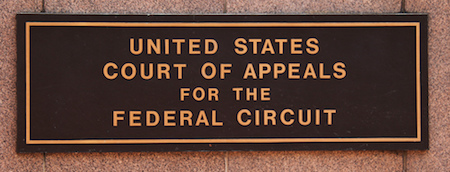 Stone Basket Innovations, LLC v. Cook Med. LLC, No. 2017-2330, 2018 (Fed. Cir. June 11, 2018) (Before Prost, C.J., Wallach, and Taranto, J.) (Opinion for the court, Wallach, J.)
Stone Basket Innovations, LLC v. Cook Med. LLC, No. 2017-2330, 2018 (Fed. Cir. June 11, 2018) (Before Prost, C.J., Wallach, and Taranto, J.) (Opinion for the court, Wallach, J.)
The Federal Circuit affirmed a district court denial of attorney’s fees to Cook pursuant to 35 U.S.C. § 285, which allows for an award of fees only in “exceptional cases.”
Stone Basket sued Cook for patent infringement and Cook petitioned for an inter partes review of the asserted patent. After the PTAB instituted review, Stone Basket filed a motion requesting adverse judgment. The PTAB granted the motion and canceled all asserted claims. Stone Basket then moved to dismiss the district court litigation with prejudice, and the court granted this motion. Cook then filed a motion for attorney’s fees under § 285, which the court denied because the case was not “exceptional.”
An exceptional case is one that stands out from others with respect to the “substantive strength of a party’s litigating position” or the “unreasonable manner in which the case was litigated.” Octane Fitness, LLC v. ICON Health & Fitness, Inc., 134 S. Ct. 1749, 1756 (2014). District courts determine whether a case is “exceptional” by considering the totality of the circumstances.
With respect to the strength of Stone Basket’s case, Cook submitted its invalidity contentions and testimony from the inventor of the asserted patent, to show that Stone Basket failed to evaluate its case and willfully ignored prior art. However, Cook’s contentions did not adequately identify the combinations of references asserted to prove obviousness and failed to put Stone Basket on clear notice of invalidity. Additionally, although the inventor admitted that a key aspect of the invention lacked novelty, the subject matter of patents must be considered as a whole, and issued patents are presumed valid. Therefore, it was not necessarily unreasonable for Stone Basket to proceed in litigation in light of the inventor’s testimony. Finally, Cook did not inform Stone Basket that it believed the suit was frivolous and waited almost two years to state that it would seek attorney’s fees if the case was not withdrawn. The district court did not abuse its discretion in finding that Cook’s failure to complain supports its conclusion that Stone Basket’s conduct did not “stand out” as exceptional.
The Federal Circuit also affirmed the district court’s finding that Stone Basket did not litigate in an “unreasonable manner,” to make the case exceptional. Cook argued that Stone Basket sued for the sole purpose of forcing a settlement. However, the Court Stone Basket litigated for almost two years, and the Court found no evidence of an immediate settlement demand. Therefore, the district court did not abuse its discretion in declining to award attorney’s fees.
Take Away
The court will consider the totality of the circumstances, including the prevailing party’s conduct in the litigation, such as the nature and timing of its relevant allegations, when awarding attorney’s fees under Section 285.
[Troutman-Ad]
[Troutman-About]

![[IPWatchdog Logo]](https://ipwatchdog.com/wp-content/themes/IPWatchdog%20-%202023/assets/images/temp/logo-small@2x.png)


![[Advertisement]](https://ipwatchdog.com/wp-content/uploads/2024/04/UnitedLex-May-2-2024-sidebar-700x500-1.jpg)
![[Advertisement]](https://ipwatchdog.com/wp-content/uploads/2024/05/Quartz-IP-May-9-2024-sidebar-700x500-1.jpg)
![[Advertisement]](https://ipwatchdog.com/wp-content/uploads/2024/04/Patent-Litigation-Masters-2024-sidebar-700x500-1.jpg)

![[Advertisement]](https://ipwatchdog.com/wp-content/uploads/2021/12/WEBINAR-336-x-280-px.png)
![[Advertisement]](https://ipwatchdog.com/wp-content/uploads/2021/12/2021-Patent-Practice-on-Demand-recorded-Feb-2021-336-x-280.jpg)
![[Advertisement]](https://ipwatchdog.com/wp-content/uploads/2021/12/Ad-4-The-Invent-Patent-System™.png)







Join the Discussion
No comments yet.